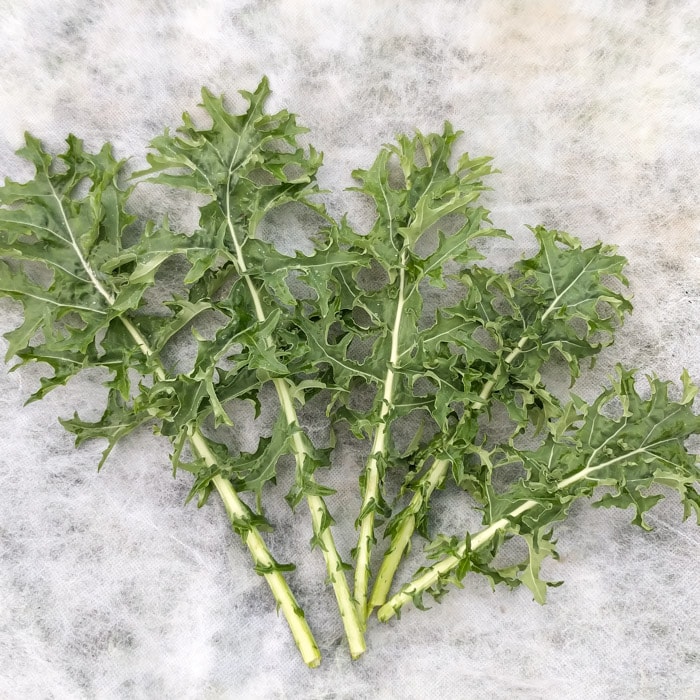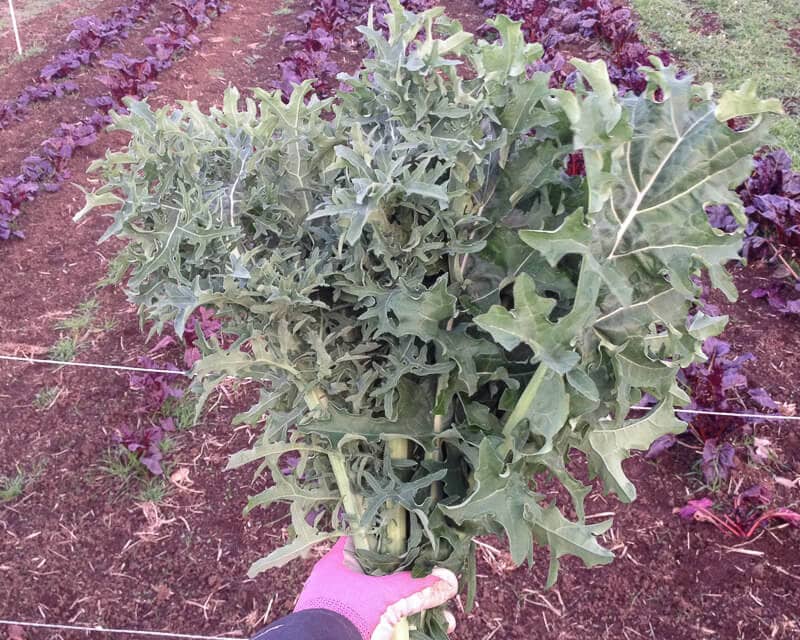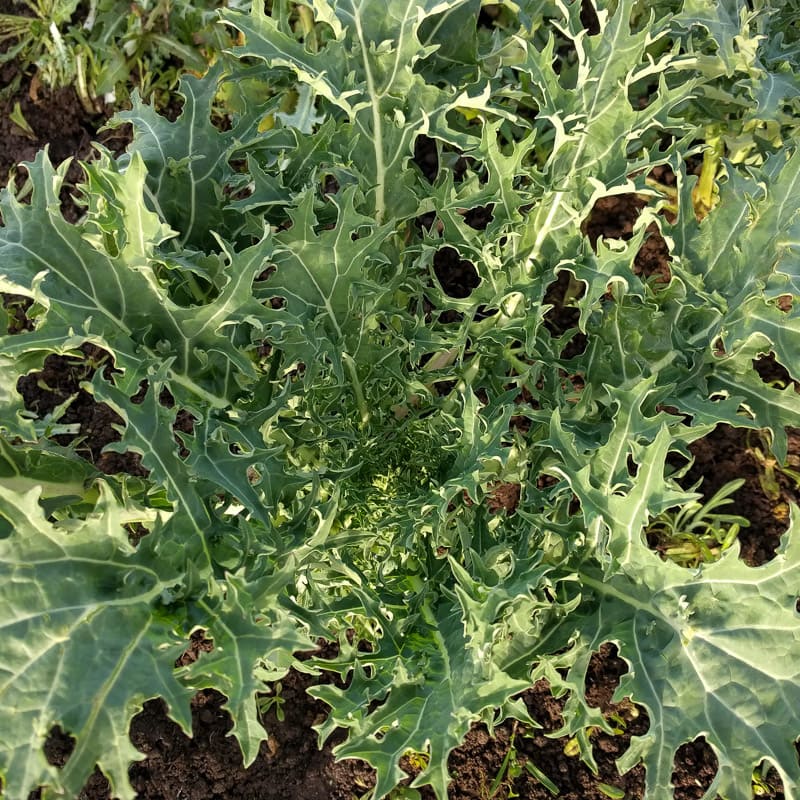Kale, North Star Polaris (Organic)
Brassica napus. 25 days baby, 50 days full.
The first release from our breeding work coming out of the Gulag Stars population. In keeping with the stars theme, we give you North Star Polaris. This participatory breeding project is inspired by the Culinary Breeding Network and we are happy to have Lane Selman and Chef Tim Wastell help with selections. After separating out 15 single plant lines of Gulag Stars, we discovered this selection and were quickly impressed. We kept coming back to this line with the thought, this kale is so perfect. Makes great bunches with a jagged silver-green Russian/Siberian style. Ribs and veins are white – resembling the popular White Russian. Vigorous with a sweet flavor, the young leaves are also great for salad mix. A true dual-purpose kale. Winter hardy with lots of sweet leaves to harvest all winter long in Oregon. An explosion of growth occurs in the spring after overwintering and prior to bolting, filling the hunger gap with tons of food. We are selecting this variety for uniformity, however it still shows some variation.
Learn more about the Culinary Breeding Network.
As required by the Oregon Department of Agriculture and the Washington Crucifer Quarantine, all Brassica family seed lots have been tested and found negative for blackleg (Phoma lingam) by an approved, certified lab.
| Geographical Origin |
|---|
Sow indoors with good potting soil February through September. Transplant about 3-4 weeks after sprouting. In our region, kale can grow through the winter without protection, and survives best when sown in June or early July for this purpose. Alternatively, direct sow March through September.
Seed Saving
To maintain genetic diversity and prevent inbreeding, collect seeds from 10 or more plants of B. napus varieties, or 30 or more plants of B. oleracea. Cut seed heads when pods are dry, place on tarp, thresh by hand or by dancing. Winnow and screen to clean. Isolate from other Brassicas of the same species by ½ mile.








What others are saying
There are no contributions yet.